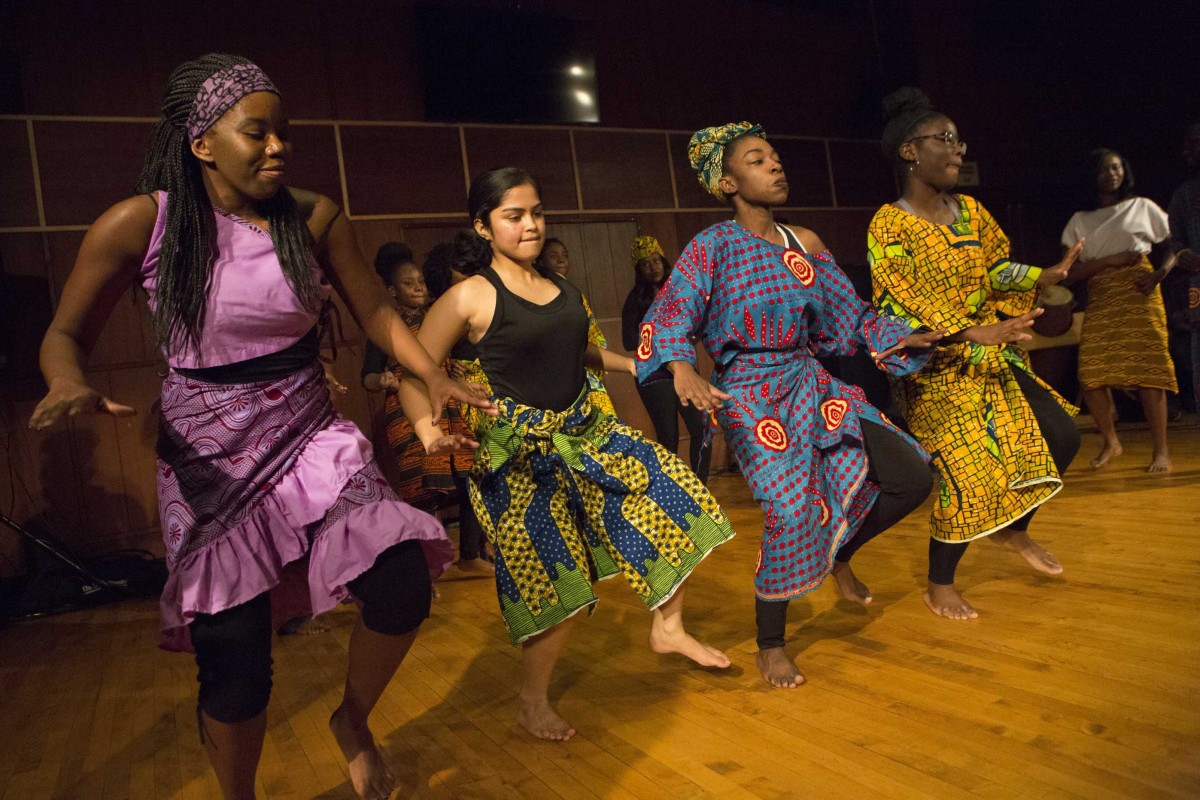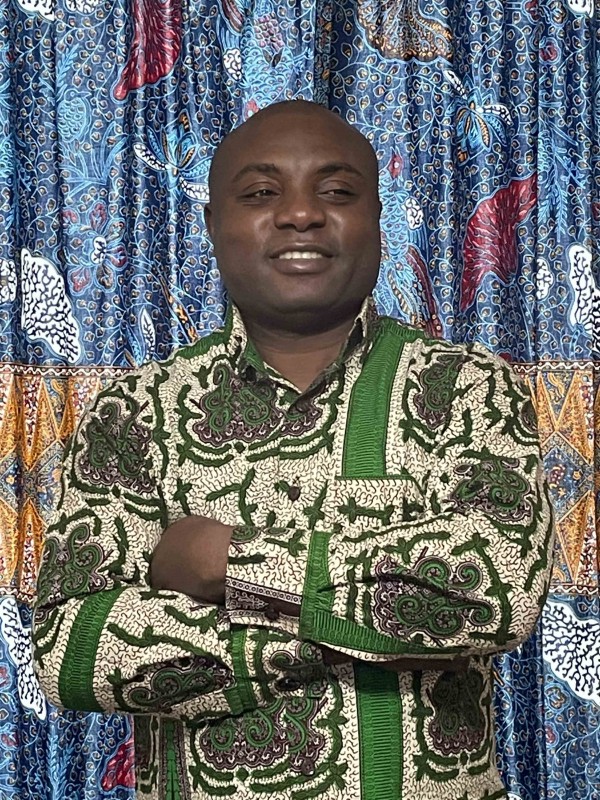International arts: Fellowship program to sponsor dance research in Ghana

Dance does more than delight the eye with feats of grace and athleticism. It teaches, transmitting a culture’s values, stories and traditions.
This spring, Visiting Assistant Professor of Theatre and Africana Studies Samuel Eliakem Kwame Nyamuame will return to his native country of Ghana to study traditional festival dances with Sylvanus Kwashie Kuwor, chair of the Department of Dance Studies at the University of Ghana’s School of Performing Arts in Accra-Legon. Then, the two scholars will develop a new curriculum for the University of Ghana’s graduate program in dance.
The program is made possible by the prestigious Carnegie African Diaspora Fellowship Program for African-born scholars. Only open to scholars born in Africa, the fellowship aims to forge bonds between institutions on the continent with counterparts in North America.
“The hope is to collaborate and share resources with the host institution to foster intercultural exchange,” Nyamuame explained.
That exchange will build on an already solid foundation of international cooperation. Kuwor has given lectures at Binghamton before, in 2019 and 2020 respectively, while Nyamuame visits his home country annually. He also gives workshops at the University of Ghana during his visits, sharing the latest in theory and practice, and engaging in collaborative research with colleagues there.
The cross-cultural exchange may center on the arts and culture, but it goes beyond that, too. Students from Binghamton and Ghana also share deeper perspectives from their countries about ways of living, studying and conducting research, he said.
“We want to continue so that students can have a better understanding of diverse cultures and cross-cultural collaboration, and ways to then share their ideas,” Nyamuame said. “Hopefully, they will be able to team up and write some papers.”
Music and dance
As it stands now, the University of Ghana’s dance program is missing the ethnomusicological component of dance in its curriculum. That’s why Kuwor asked Nyamuame to partner with him on the project.
“It has to do with the integration of music and dance, and how they can capture the festivals and cultural components that happen in Ghanaian societies and African society,” Nyamuame explained. “It’s a school of performing arts, so the different departments under the school share these traditions and learn from each other to get a better understanding of the holistic nature of African arts.”
The global coronavirus pandemic has delayed the trip somewhat, but Nyamuame and Kuwor will likely be out in the field in the later part of the spring semester, the start of Ghana’s festival season, which runs until the end of April.
Ghana has been taking the coronavirus seriously, and was lauded in 2020 for its response to the pandemic. Most cases are concentrated in the greater Accra region, a highly urban area similar in some respects to New York City, said Nyamuame, who last visited the country in December 2020. On the plus side, the location the researchers will visit have reported no cases of COVID-19.
With the transition to online learning, Nyamuame will continue to teach two classes at Binghamton this spring despite the research trip. One is an online seminar, the other a hybrid dance course that alternates between online and in person to maintain social distancing. With a good internet connection, Nyamuame is able to teach class from anywhere, as he did in the fall of 2020. His teaching assistants will also help with the in-class sections when he is away, but he will always show up remotely to direct the class, he said.
While in Ghana, Nyamuame and Kuwor will explore the deeper cultural contexts behind traditional dances, which are central to Ghanaian festivals.
“What are the elements that need to be studied culturally and academically?” Nyamuame asked. “We will also study how those values can contribute to knowledge bodies, especially the philosophies embedded in the movement and gestures — the theatrical component.”

